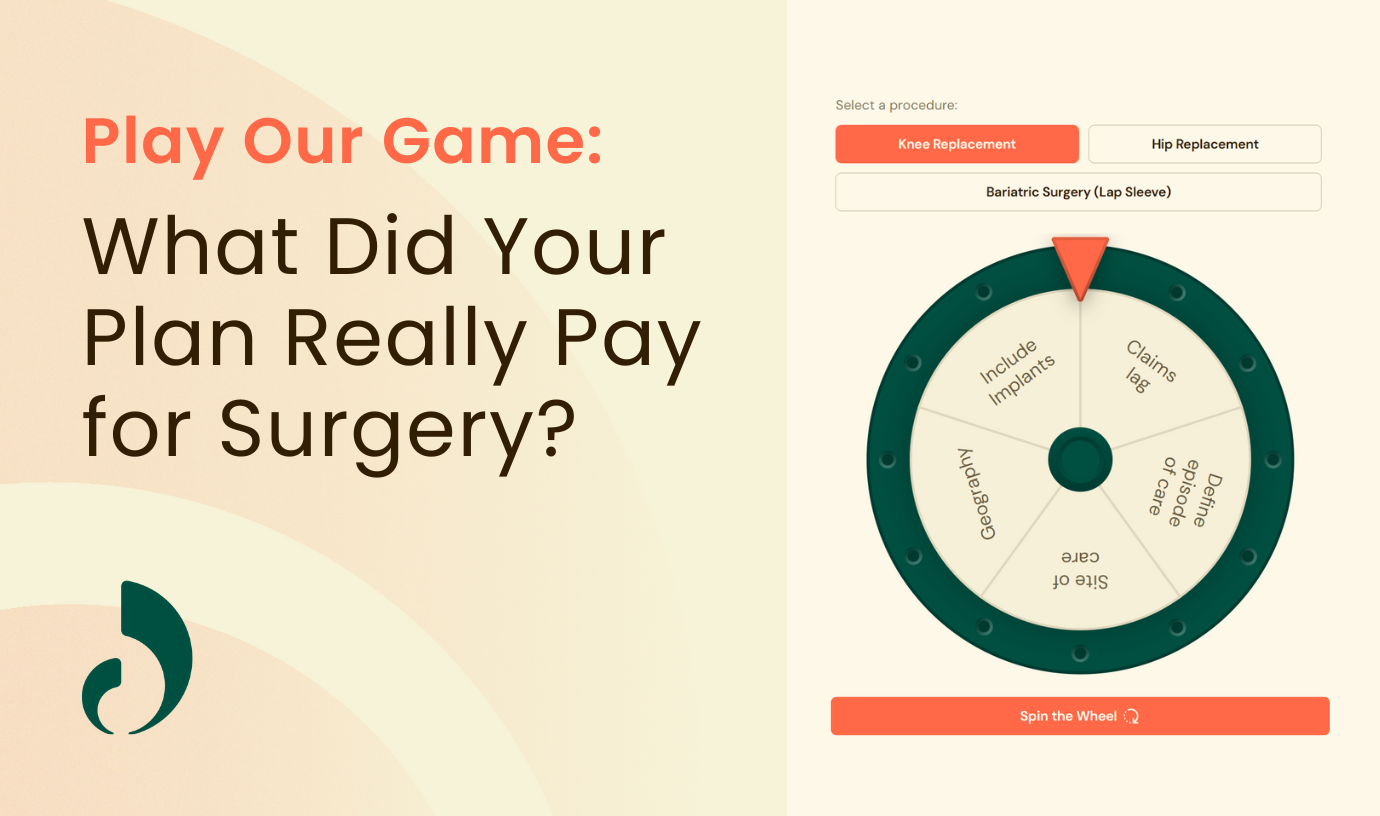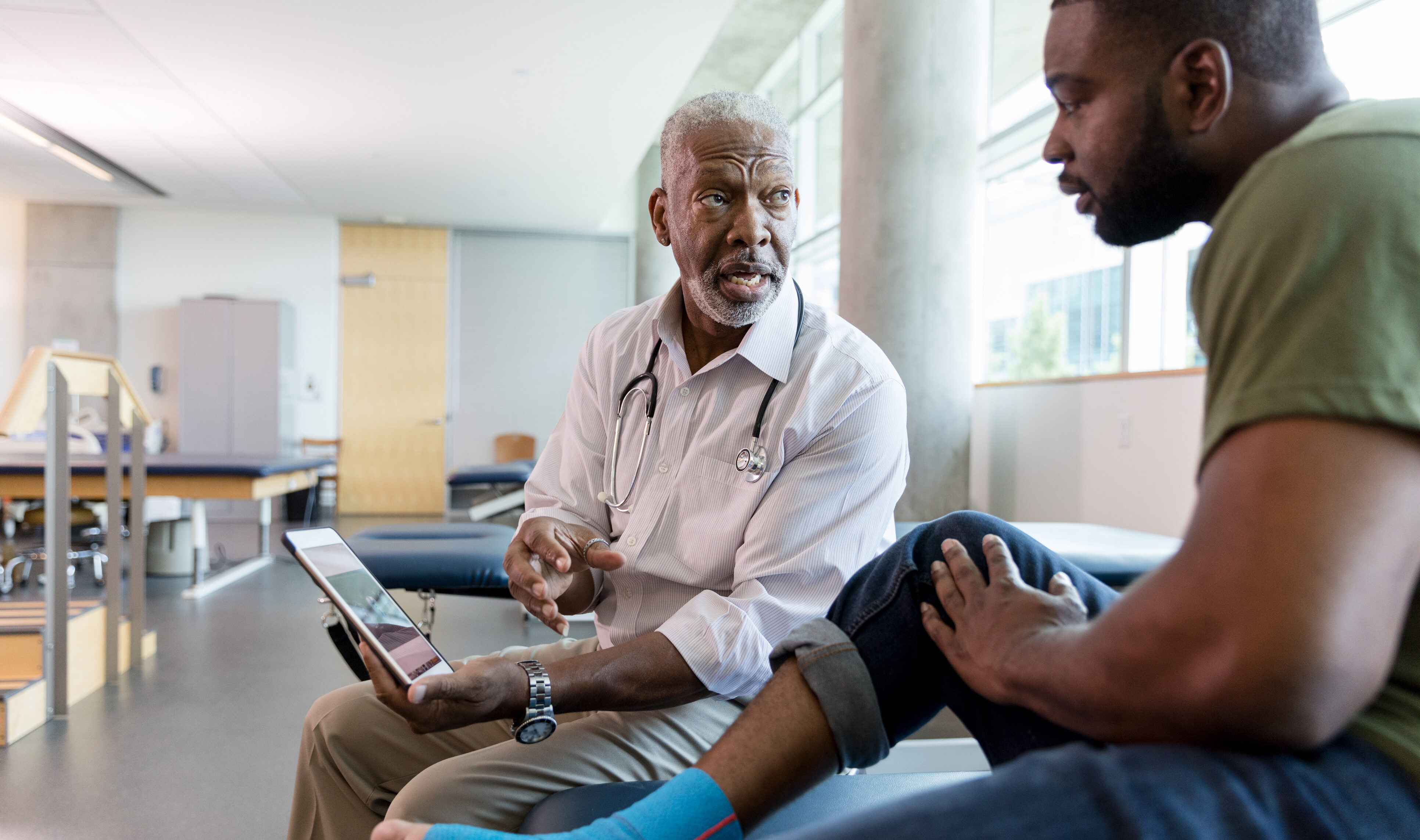The Center of Excellence (COE) model is familiar to benefits leaders—85% of large employers have a COE for at least one condition, according to Business Group on Health.
While you’re probably used to thinking of COEs at the facility level—the word “center” is in the name, after all—at Lantern, we’re taking a different approach.
We’ve built a Network of Excellence at the surgeon level, and there are some critical reasons why:
– Not all physicians in a facility have the same outcomes. Even in the “best” hospitals, there are surgeons who are top performers and those who are just learning.
– Excellent surgeons operate in all kinds of settings—from Ambulatory Surgery Centers to leading hospitals. Lantern builds its network by curating top-performing doctors and facilities nationwide, carefully evaluating clinical outcomes, patient satisfaction and cost. Plus, most surgeons have privileges at more than one facility. Lantern empowers surgeons to operate at the most appropriate, qualified site for the patient.
– A Network of Excellence can have better reach. A network of physicians that includes any facility where excellent surgeons operate brings care closer to home for its members. For example, Lantern’s network includes 2,000+ surgeons across the country, allowing 98% of members to be within driving distance of their appointments.
What to Look for in a Surgical Network of Excellence
Ready to look for a Network of Excellence to support your employees? Here are a few ways we assess our network here at Lantern.
Fellowship Training and Specialization
Board certification demonstrates that a surgeon meets the minimum standards of the national board for that specialty. Fellowships teach surgeons specialized skills and provide extra experience in a subspecialty, which allows them to focus their practice on procedures and conditions in that specialty. Fellowship training allows the surgeon to become a specialist. Still, approximately one-third of surgeons in any given market lack board certification. And many—36% of bariatric surgeons and 30% of orthopedic surgeons—haven’t completed a fellowship.
“It’s a very common misunderstanding that if you’re a surgeon, you’re board-certified,” Ryan Burke, Chief Network Officer at Lantern, says. “But the reality is, in a lot of specialties, the first time you’re even eligible to take your board certification is a year or two after you finish your residency.”
Surgeons need to collect the appropriate number of patients and cases in order for a board to review their performance.
“When you say everyone must be board-certified, it’s important to clarify that doesn’t mean you wouldn’t be eliminating some very good surgeons. You might be,” Burke adds. “But in training, they always have someone there to help when things get challenging. When they move away from training and into a private practice setting or employment model, it’s the first time they’re out on their own. Allowing that surgeon time to become confident in deploying their skillset on patients is really important.”
Procedure Volume
Research shows a higher procedure volume is usually associated with better outcomes.
“When you’ve done thousands of knee replacements, that experience equips you with the insight to recognize a subtle finding that may have a meaningful impact on outcomes. You are also more likely to have the muscle memory necessary to manage technical complexity as it arises,” says Raymond Hwang, MD, Vice President & Medical Director at Lantern and a practicing spine surgeon. “Similarly, if you’re very experienced in a specific procedure, you also have a better sense for indications: when someone is or isn’t a good candidate for a given intervention. That allows you to provide more nuanced education and guidance about treatment options, which facilitates more personalized care and avoids unnecessary or inappropriate surgeries, all of which improves outcomes.”
Patient Education and Surgery Prep
Not every patient is the right candidate for surgery. Chronic conditions like obesity, Type 2 diabetes or smoking are often associated with poorer surgical outcomes and higher complication rates. High-quality surgeons are able to provide education and support about modifiable risk factors to optimize surgery.
This might look like recommending smoking cessation before or after surgery to help speed a healthy recovery.
“Almost by definition, these surgeons follow evidence-based guidelines, so they deliver more appropriate care, such as recommending smoking cessation prior to a lumbar fusion,” says Dr. Hwang. “Not only are they technically excellent, they also tend to prioritize education and shared decision making, both important for good outcomes.”
Center of Excellence Buyer’s Guide

Site of Care Optimization
Solutions with a vast and diverse network of surgeons allow patients to access care at the appropriate site, which leads to better outcomes, lower costs and a better patient experience.
“Great surgeons know how important the most appropriate site of care is for a patient,” Burke says. “We’ve seen ASCs produce phenomenal results, but not when they’re used on the wrong patient. A big piece of getting to know surgeons is going on site, talking to them, and interviewing them and the staff at the facility.
“It’s critical to work with a surgeon who understands when a person qualifies for an ASC, and when they don’t, makes sure they have an excellent hospital nearby where they can go perform that surgery in a safer environment for that individual patient,” Burke adds.
Low Complication Rate and Surgical Avoidance
Surgeons in Lantern’s Network of Excellence know that for many patients, the best course of action to achieve the best outcome is actually avoiding surgery. That’s why surgery is not recommended 20-30% of the time. When surgery is called for, they deliver a near zero (0.6%) complication rate compared with an 8-15% industry average.
Lantern’s team conducts interviews with every surgeon entering our network.
“The goal of our interview process is to get the surgeons talking. How do they decide who’s a great candidate for surgery? How do they decide site of care—should the patient be operated on in an ASC, or do they require hospitalization? How do they optimize patients for surgery and enhance their recovery post-operatively?” Burke says. “We want to hear a ‘patient-first’ mentality come through because that’s aligned with our philosophy. There’s no algorithm out there that can give us these types of inputs.”
Guiding Employees to the Right Care
Even if the average person knows what to look for in a surgeon specializing in their procedure, it’s nearly impossible to find information like procedure volume and complication rate as a layperson.
That’s why providing employees with access to a rigorously vetted Network of Excellence is so valuable.
Ready to learn more about how Lantern builds our quality network? Get in touch.




